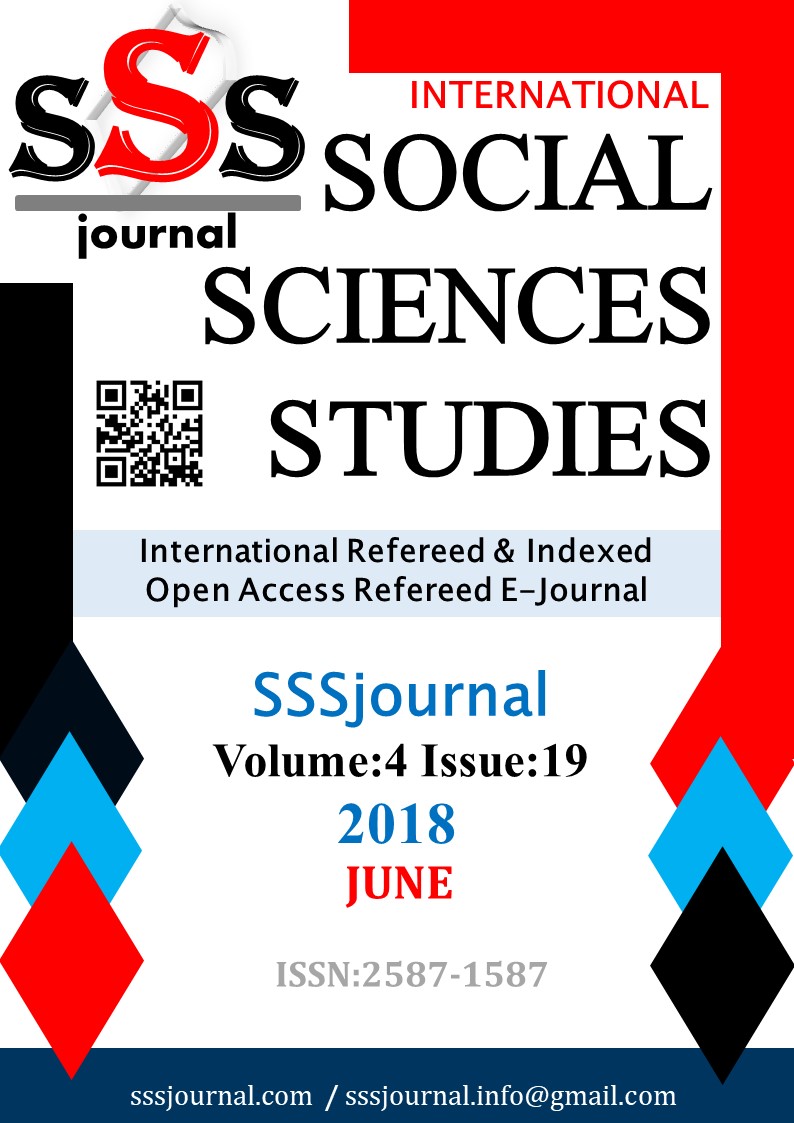Author :
Abstract
Structural condition dependency theory is based on hypothesis that organizations, which can adapt to environmental changes and can change their structures, easily can survive, others will disappear. Therefore it is separated from previous approaches in respect to its purposes. According to this theory, organizations, which can be adapted and complied with changing environmental conditions, are considered successful. Theory defends that best organizational structure and management model to be used for achieving success and survive can only be determined according to circumstances which organization faced and it does not consider emphasis of system approach “for each organization”. In this study, firstly, meaning and basic problematic of theory and contextual dimensions and pioneer researches were discussed. General evaluation where criticism and proposals are considered was made in conclusion section.
Keywords
Abstract
Structural condition dependency theory is based on hypothesis that organizations, which can adapt to environmental changes and can change their structures, easily can survive, others will disappear. Therefore it is separated from previous approaches in respect to its purposes. According to this theory, organizations, which can be adapted and complied with changing environmental conditions, are considered successful. Theory defends that best organizational structure and management model to be used for achieving success and survive can only be determined according to circumstances which organization faced and it does not consider emphasis of system approach “for each organization”. In this study, firstly, meaning and basic problematic of theory and contextual dimensions and pioneer researches were discussed. General evaluation where criticism and proposals are considered was made in conclusion section.
Keywords
- Blau, P. M. (1970). “A Formal Theory of Differentiation in Organizations”, American Sociological Review,
- Blau, P. M. (1970). “A Formal Theory of Differentiation in Organizations”, American Sociological Review, 35(2), pp.201-218.
- Çetin, S. (2008). “Stratejik Yönetim” (in) Çağdaş Yönetim ve Örgütsel Başarım (ContemporaryManagement and Organizational Achievement), Ed. M. Ş. Şimşek and A. Çelik, Konya: Eğitim Publishing. Donaldson, L. (2001). The Contingency Theory of Organizations, London, Sage Publication.
- Drazin, R. and Van de Ven, A. H. (1985). “Alternative Forms of Fit in Contingency Theory”, Administrative Science Quarterly, 30(4), pp.514-539.
- Emery, F. E. and Trist, E. L. (1965). “The Causal Texture of Organizational Environments”, Human Relations, 18(1), pp.21-32.
- Heiens, R. A. and Pleshko, L. P. (2011). “A Contingency Theory Approach to Market Orientation andRelated Marketing Strategy Concepts: Does Fit Relate to Profit Performance?”, Management & Marketing, 6(4), pp.19-34.
- Jokipii, A. (2010). “Determinants And Consequences of İnternal Control in Firms: A Contingency Theory Based Analysis”, Journal of Management & Governance, 14(2), pp.115-144.
- Lawrence, P. R. and Lorsch, J. W. (1967). “Differentiation and Integration in Complex Organizations”, Administrative Science Quarterly, 12(1), pp.1-47.
- Lizarralde, G., Blois, M. D., and Latunova, I. (2011). “Structuring of Temporary Multi‐Organizations: Contingency Theory in the Building Sector”. Project Management Journal, 42 (4), 19-36.
- McGrath, J. J. (2006). Boots on the Ground: Troop Density in Contingency Operations. Government Printing Office.
- Otley, D. (2016). “The Contingency Theory of Management Accounting and Control: 1980– 2014”, Management Accounting Research, Vol.31, pp.45-62.
- Pennings, J. M. (1975). “The Relevance of the Structural-Contingency Model for Organizational Effectiveness”, Administrative Science Quarterly, 20(3), pp.393-410.
- Perrow, C. (1967). “A Framework for the Comparative Analysis of Organizations”, American Sociological Review, 32(2), pp.194-208.
- Pugh, D. S., Hickson, D. J., Hinings, C. R and Turner, C. (1969). “The Context of Organization Structures”, Administrative Science Quarterly, 14(1), pp.91-114.
- Schoonhoven, C. B. (1981). “Problems with Contingency Theory: Testing Assumptions Hidden within the Language of Contingency Theory”, Administrative Science Quarterly, 26(3), pp.349-377.
- Sine, W. D., Mitsuhashi, H. and Kirsch, D. A. (2006). “Revisiting Burns and Stalker: Formal Structure andNew Venture Performance in Emerging Economic Sectors”, Academy of Management Journal, 49(1), pp.121-132.
- Şimşek, M. Ş. and Çelik, A. (2017). Yönetim ve Organizasyon (Management and Organization), 19.Baskı, Konya: Eğitim Publishing.
- Zhao, J., Ren, L. and Lovrich, N. (2010). “Police Organizational Structures During the 1990s: An Application of Contingency Theory”, Police Quarterly, 13(2), pp.209-232.
